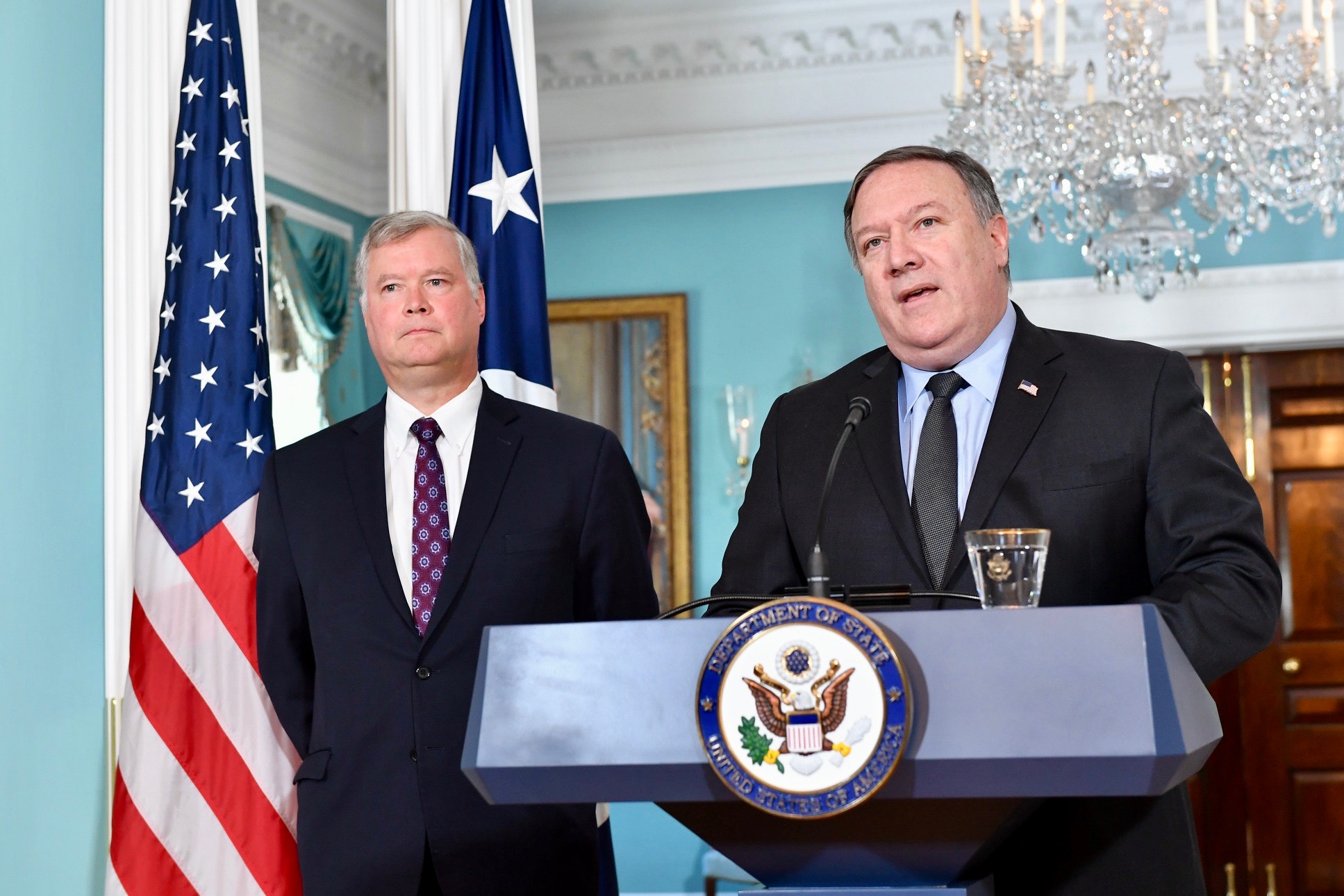Democratizing US policy debate on North Korea
In recent months, tensions between the United States and North Korea have grown due to lack of progress in negotiations over Pyongyang’s nuclear weapons program. In a statement marking the two year anniversary of the Singapore Summit, North Korea’s Foreign Minister Ri Son Gwon declared the talks dead and vowed to “build up a more reliable force to cope with the long-term military threats from the U.S.”
In 2018, President Trump and North Korean leader Kim Jong Un pledged to establish a “new U.S.-DPRK relations and the building of a lasting and robust peace regime on the Korean Peninsula.” Today, negotiations are non-existent and are unlikely to restart until after the U.S. presidential election in November.
President Trump deserves part of the blame for this failure. His diplomacy was more focused on optics than substance and he had surrounded himself with war-hawks like Secretary of State Mike Pompeo and National Security Advisor John Bolton, who never intended to make the negotiations a success.
But the problem goes deeper than Trump. Washington is plagued by a glaring absence of diverse viewpoints on North Korea, which have stymied fresh thinking and driven the United States towards an ever more hawkish attitude. The deadlock in the talks is partly a result of the deadlock of our limited thinking. It also suffers from a lack of understanding in how negotiations work. As Ambassador Christopher Hill, former chief negotiator in the Six Party Talks in George W. Bush administration observed, “there is a coterie of people in Washington who do not understand the concept of negotiations. It involves a two-way-street, and giving up certain things in order to get things [we want].”
One needs to look no further than the U.S. Congress to see how stale debates in Washington on North Korea policy have become. A review of House and Senate committees that have jurisdiction over foreign policy, defense, and sanctions policy have held 29 public and classified hearings related to North Korea or Northeast Asia security between January 2017 to June 12, 2020.1 Fifty-three individuals appeared 71 times before these committees. Sixty-one percent of the witnesses were from the Defense Department or represented think tanks that receive money from major defense companies, while 23 percent were current or former U.S. officials from the Department of Treasury, Department of State, Central Intelligence Agency, and the Office of the Director of National Intelligence. The remaining 16 percent were from human rights organizations, universities, and the United Nations. The fact that the Defense Department and think tanks funded in part by defense companies dominate conversations on North Korea on Capitol Hill is a serious problem. Those with links to defense contractors may have financial incentives to promote policies that create more dependency on U.S. defense and arms sales.
Under-represented in these debates are outside-the-beltway perspectives, which tend to be more skeptical of military approaches and more supportive of exhausting all diplomatic options. This includes hundreds of thousands of Korean Americans with family members in North Korea; national advocacy organizations such as Peace Action and Win Without War that have consistently advocated for a negotiated solution on North Korea; faith-based organizations that conduct humanitarian work inside North Korea; veterans groups; and others whose faith in diplomacy can provide the necessary political will to break the deadlock. Constituent-based organizations from Hawaii to Maine provide important perspectives precisely because of their on-the-ground experience and personal connections to the Korean Peninsula.
The composition of national security committee leadership also suggests a narrow view about Pyongyang’s intentions and credibility. Members of Congress who have proven to be less cynical and more politically courageous in terms of being willing to take risks for peace typically do not lead committees that have jurisdiction over North Korea policy. Ideas such as calling for a smaller Pentagon budget, limiting the use of economic sanctions, or supporting an end to the Korean War tend to originate from members of the Congressional Progressive Caucus (CPC). Out of 16 chairs and ranking members of House and Senate national security committees, however, only two, Representatives Adam Smith (Chair of the House Armed Services Committee) and Maxine Waters (Chair of the House Committee on Financial Services), belong to the CPC.
For too long, the foreign policy establishment in Washington has monopolized the debate on North Korea via a small group of individuals, many of whom arguably have a vested interest in fueling a conflict-centered narrative. This is a mistake. The majority of Americans prefer compromising over exacerbating tensions. Three months before the 2018 Singapore Summit between Trump and Kim, a Quinnipiac poll found that voters supported resolving the situation with North Korea diplomatically, rather than through use of military force, by a two-thirds majority. In 2019, voters were split on Trump’s handling of North Korea, though 54 percent still supported Trump’s decision to create a close relationship with Kim Jong Un. The Chicago Council on Global Affairs’ February 2020 poll found that even if no deal on denuclearization is reached, a majority (57 percent) of Americans oppose airstrikes against North Korea’s nuclear production facilities. And Jamaal Bowman’s victory over Eliot Engel, Chairman of the House Committee on Foreign Affairs, suggests that the public is tired of foreign policy that serves a narrow constituency.
The work to democratize the conversation on North Korea will not be easy. But done right, it could unlock a U.S. policy based on pragmatism and common sense that truly advances American interests on the Korean Peninsula.
This chapter originally appeared in a report from Women of Color Advancing Peace and Security. You can read the full report here.
- 1. The Quincy Institute reviewed hearings conducted by the following committees from 2017 to June 12, 2020: Senate Armed Services Committee, House Armed Services Committee, Senate Foreign Relations Committee, House Committee on Foreign Affairs, House Financial Services Committee, and Senate Banking Committee.
